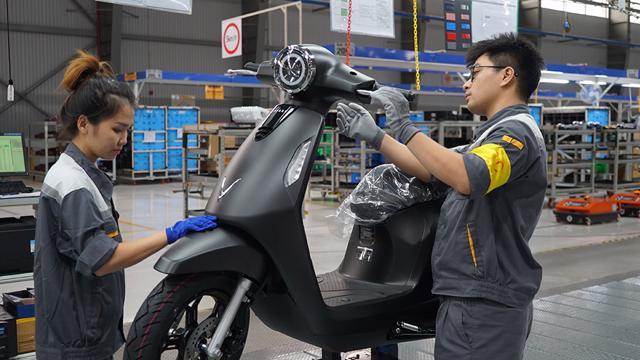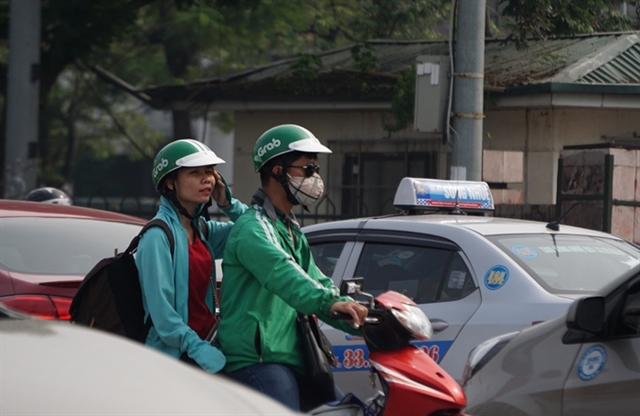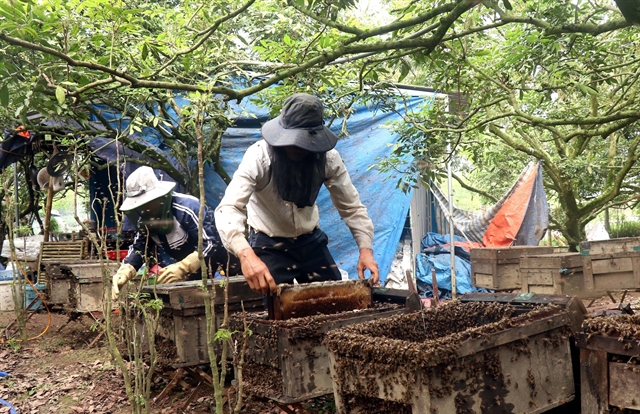 Economy
Economy

The Ministry of Transport will bring to a close the pilot scheme for electronic contract-based passenger transportation, popularly known as ride-hailing services, on March 31.

|
| The Ministry of Transport will bring to a close the pilot scheme for electronic contract-based passenger transportation, popularly known as ride-hailing services, on March 31. — Photo vietnammoi.vn |
Compiled by Thiên Lý
The Ministry of Transport will bring to a close the pilot scheme for electronic contract-based passenger transportation, popularly known as ride-hailing services, on March 31.
The pilot scheme allows ride-hailing services to operate in five provinces and cities, HCM City, Hà Nội, Đà Nẵng, Khánh Hòa, and Quảng Ninh.
Once it ends after being in force for more than two years, ride-hailing services will have to comply with regulations included in the Government’s new Decree No.10 for transportation businesses, which comes into force on April 1.
Is it likely to have consequences for technology-based transport firms?
A spokesman for Grab told Investment Review newspaper it would not have any impact on the company’s operations in Việt Nam.
Customers could still use all Grab services just like now, while drivers would continue to do business on Grab platforms, he added.
Nguyễn Trí Anh of GoViet said his company’s operations would not be affected either since it only offers tech-based motorbike transport services.
The pilot scheme mainly applied to ride-hailing cars.
Trần Bảo Ngọc, director of the Ministry of Transport’s transport department, said the pilot scheme was being ended to implement Decree No.10.
“The new decree will not affect cars providing passenger services via ride-hailing applications. It even has regulations that create more favourable conditions for tech-based transport firms to develop their business.”
CEO of FastGo, Nguyễn Hữu Tuất, concurred with him, saying the decree would level the playing field since it allows all firms around the country to be involved in tech-based transportation whereas the pilot scheme is applied only in some provinces and cities.
What are the main features of Decree 10?
Firstly, all service vehicles with less than nine seats in passenger transportation will be treated as taxis, and must install a taxi sign on the roof or a sign made of reflective material on the front and rear windows before July 1.
Ride-hailing cars must now also have a contract-based car sign on the front windscreen and the logo of the firm.
The roof sign will not be compulsory for traditional taxis. Instead, they can choose to stick a taxi sign made of reflective material on the front and rear windows like ride-hailing cars.
Analysts said the decree would have a great impact not only the tech-based transportation segment but also the entire transport market and other sectors.
By allowing them to operate nation-wide, it would increase competition among businesses, they said.
These changes would help develop the market and create more choices for the passengers, they said.
To grasp the opportunity and develop their business, many firms are making preparations.
Grab has said it will inject an additional US$500 million into Việt Nam in the next five years on top of its originally planned investment to develop new mobile technology solutions and logistics solutions.
FastGo considers the changes an opportunity to expand operations and enter into tie-ups with other taxi and transport firms in the country.
To exploit the opportunities, it plans to expand to 10 more provinces and cities which have airports and attractive tourism destinations besides making some adjustments to ensure its operations are in line with the provisions of the decree.
The company also intends to provide application solutions to taxi firms and contract-based passenger transport firms to help them manage their drivers and offer business plans suitable for various kinds of passengers.
Trade ministry seeks support to reduce transport costs for firms
The Ministry of Industry and Trade has urged the Ministry of Transport to review all taxes and fees and help reduce transport costs for firms hit by the new coronavirus outbreak.
Deputy Minister of Industry and Trade Trần Quốc Khánh said in a communication to the transport ministry that transport firms and shipping lines should be helped to reduce fees for some port services they offer to ease the burden on logistics and import and export enterprises.
Toll road fees and tariffs for wharf and berth services were among those he suggested for reduction.
The trade ministry also wants the transport ministry and other relevant agencies to create more favourable conditions for enterprises, particularly those exporting farm produce, to carry out customs procedures at border gates.
Earlier it told authorities in provinces and cities to collaborate with relevant agencies to review and make a list of farm products being harvested to assess demand and find ways to boost exports.
The Covid-19 outbreak has taken a heavy toll on trade activities including border trade, it has said.
On February 23 and 24 some 695 container trucks and 11 cargo carriers were stuck at border gates in Lào Cai, Quảng Ninh, Hà Giang and Lạng Sơn provinces on the border with China. VNS









